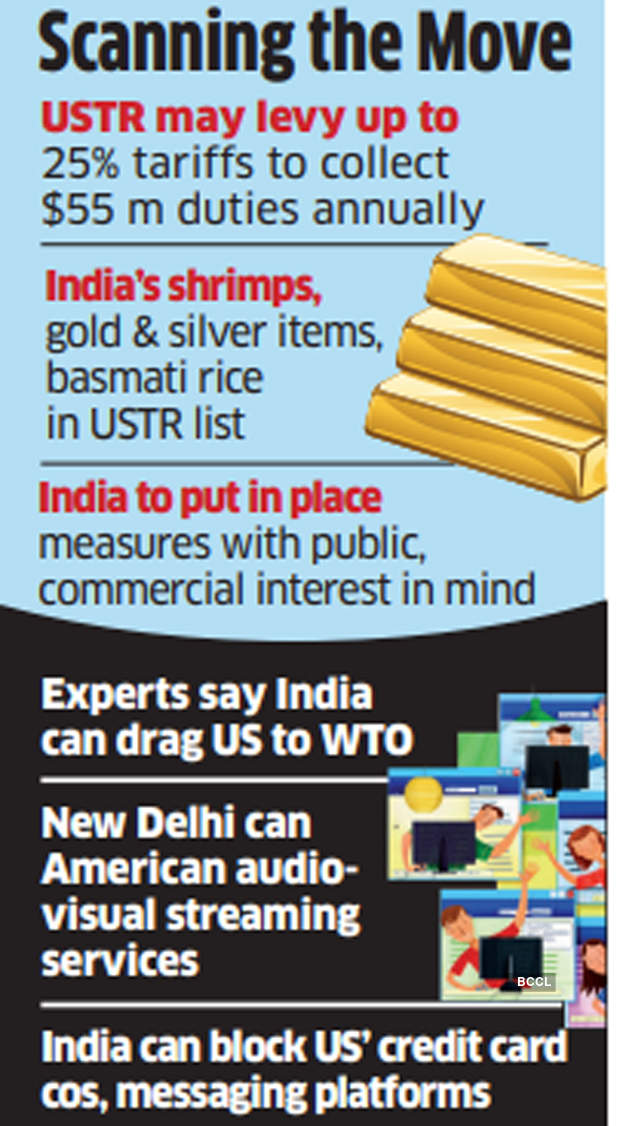New Delhi will likely approach the United States Trade Representative (USTR) with an economic request to drop the proposed ‘retaliatory’ taxes, applicable to some Indian exports to the US in response to India’s equalisation levy. Thus, India will likely approach the United States Trade Representative (USTR), asking it to drop the proposed tariffs of up to 25% on around 40 Indian products.
USTR’s proposed 25% tariff was in response to India’s imposition of equalisation levy on certain digital, e-commerce American companies, targeting their revenues. The move by USTR was appreciated by the American digital association which was affected the most by the equalisation levy.
Dhruva Advisor, partner, Ajay Rooti stated that ”What is surprising is the estimate of the DST to be collected by India as per the USTR. If this is indeed a correct estimate, it doesn’t even need any action from the US since it is inconsequential in the scheme of things.
Again, for India the tariffs on certain exports are not as much about the immediate impact but how this could set a precedent, should the estimate by USTR change based on actual collections of the equalisation levy at a later point.”
Justifying its equalisation levy move, an Indian official stated that “The levy does not discriminate against any US companies as it applies equally to all non-resident e-commerce operators, irrespective of their country of origin,”
In an investigation under the World Trade law, by the USTR, it was found that 119 companies that were liable under India’s DST, 86 companies were based in America. Thus, the United States Trade Representative (USTR) had maintained that the tariffs imposed would be equivalent to the tariffs imposed on US companies in India, which will amount to $55 million per year.
The retaliatory tariff attempts to tax goods like shrimps, basmati rice, bamboo products, wood furniture, precious or semi-precious stones, gold/silver items, cigarette paper, cultured pearls, jewelry, corks, token-operated games for arcades and brassieres.

India alone is not being subjected to the wrath of the USTR but the punitive action is also planned for Austria, Italy, Spain, Turkey, and the United Kingdom, who also have been accused of passing the similar discriminatory digital services tax regulations.

Since, most of the big digital giants have created a maze of corporations the world over as a part of their tax planning, this implies that they don’t pay home taxes in a number of jurisdictions as per the liking of the native governments.
Thus, under the Base Erosion and Profit Shifting (BEPS) framework, massive economies, except US, had come collectively together to increasingly tax the worldwide revenue of digital corporations.
Thus, the Indian authorities had stated that solely corporations which have an everlasting institution in India will be subject to the equalisation levy of 2% tax, relevant on gross income. The US had earlier refused to be a part of the BEPS claiming that it largely targeted American multinationals reminiscent of Apple, Amazon, Facebook and Google.

